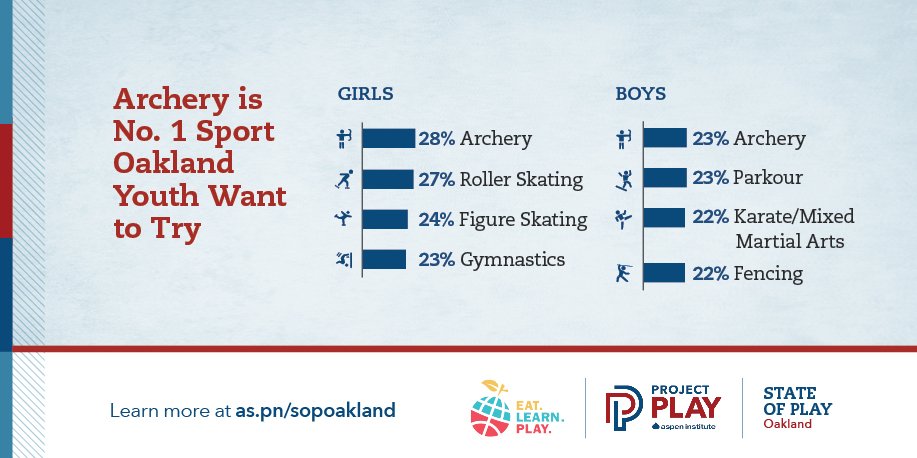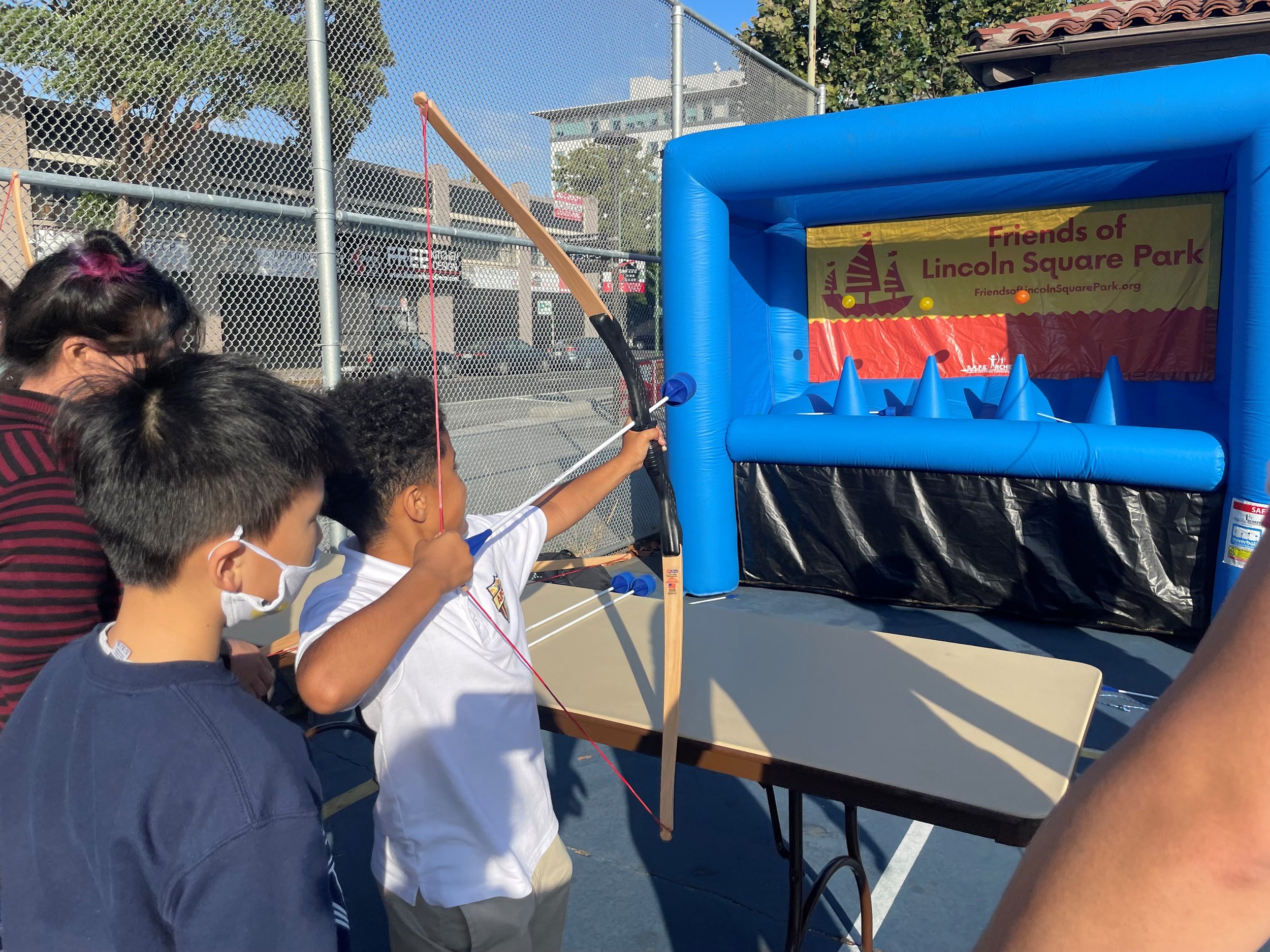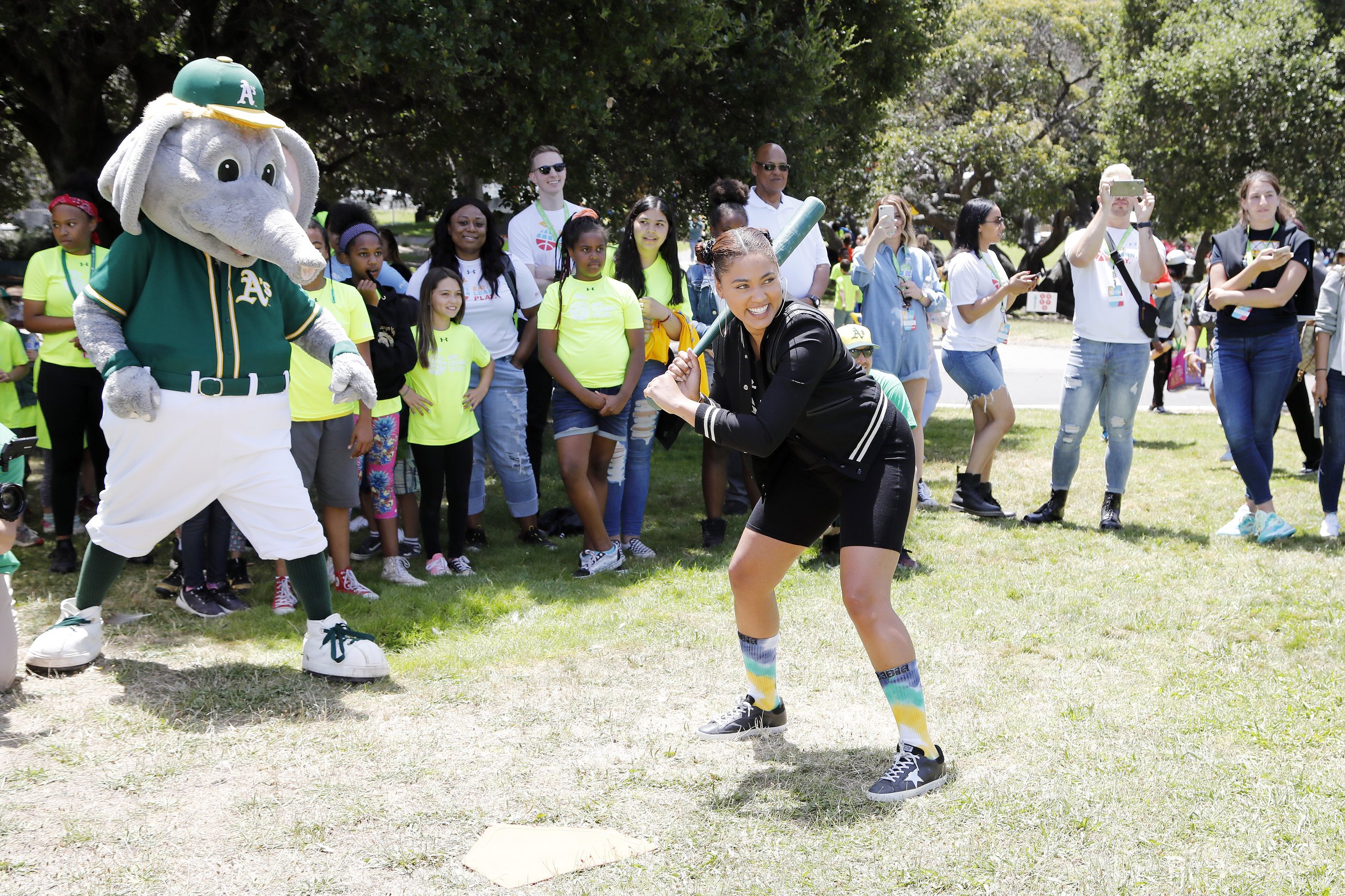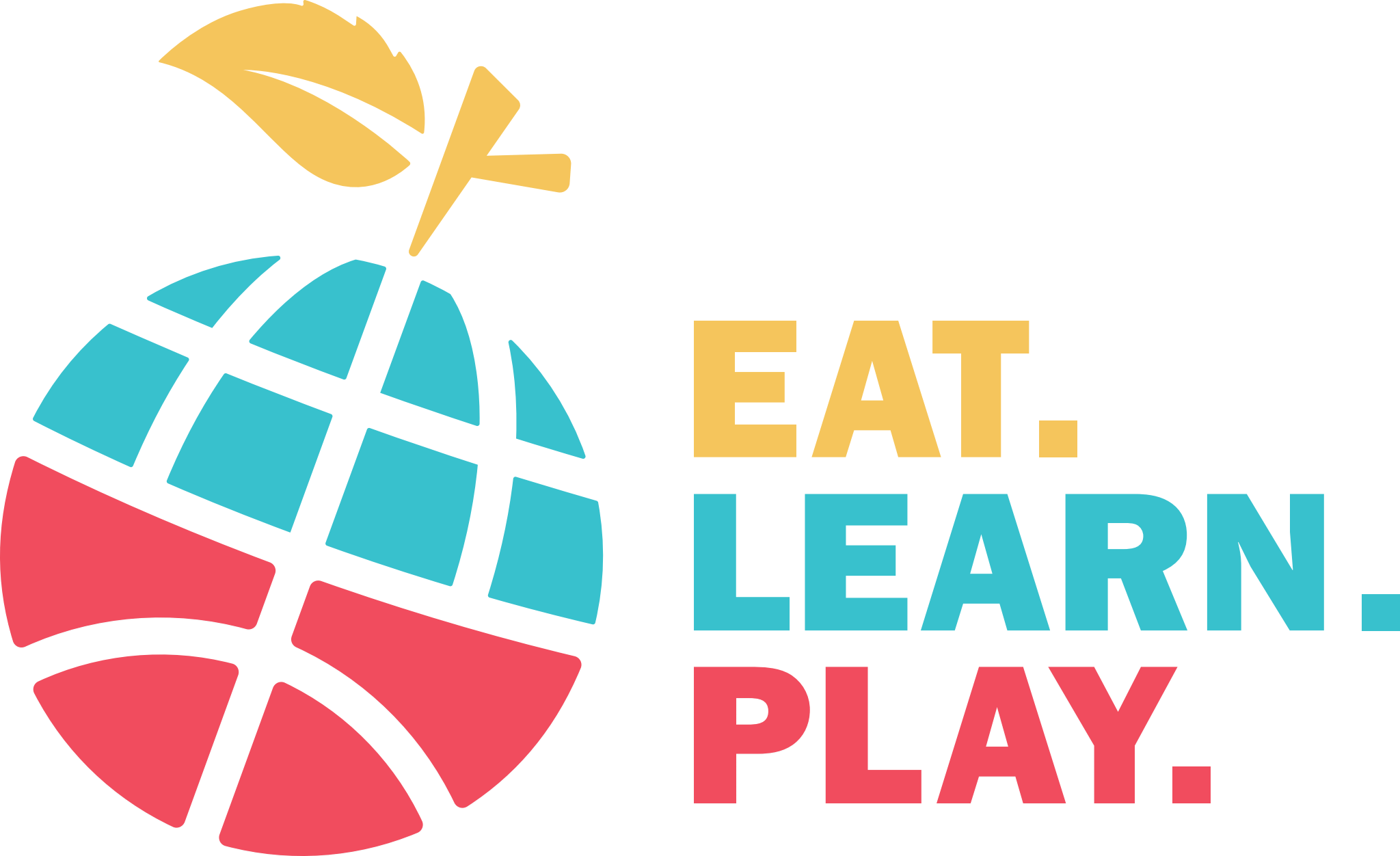State of Play Oakland was released Aug. 24, 2022, as the Aspen Institute’s latest community report. In partnership with Stephen and Ayesha Curry’s Eat. Learn. Play. Foundation, the report analyzes the state of youth sports in Oakland, California.
State of Play Oakland is the product of a one-year analysis of the city of Oakland. The Aspen Institute identified 40 findings and made recommendations based on the unique characteristics of Oakland through youth surveys; focus-group discussions with youth, coaches, and parents and caregivers; and analysis of Oakland’s youth sports ecosystem.
Only 14% of Oakland youth receive the 60 minutes of physical activity per day recommended by the Centers for Disease Control and Prevention – below the national average of 23%. Imagine if more children in Oakland had access to a quality sports activity into and through adolescence, and the impact on their health as they move into adulthood.
State of Play Oakland shows a divide based upon race, gender and income in youth sports experiences for some children in Oakland. Among the report’s findings:
Oakland girls (9%) are less likely to be sufficiently physically active than boys (19%).
Access to quality parks and teams is unevenly distributed based on race and ethnicity.
White children are three times more likely than Latino/a youth and two times more likely than Black and Asian kids to play sports on a recreation center team.
Although Oakland is largely viewed as a football and basketball town, youth said they are very interested in trying other sports. However, children lack sustainable ways to keep playing these new sports to establish healthy habits for life.
One of the strengths of Oakland is its close proximity to so many unique sports and physical activities within the Bay Area. The report’s main recommendation is to diversify Oakland’s sports offerings through partnerships by leveraging the city’s existing community school model.
Our youth survey asked young people to share the sports they are playing, want to play, where they play in Oakland, their reasons for engaging or not engaging in sports, and their relationships with coaches. More than 1,000 youth from across Oakland were surveyed.
After the report was released, Friends of Lincoln Square Park partnered with the Asian Pacific Environmental Network to purchase a Hoverball Archery set for its Lincoln Summer Nights series. Volunteers have been able to bring archery to Oakland youth, many for the first time. It’s a tangible example of how community members took lessons learned from the report to improve the state of play in Oakland.
Since the release of the report, the following developments have occurred:
Eat. Learn. Play. announced in 2023 it will raise and invest $50 million to support Oakland students by 2026. The movement includes transforming 25 schoolyards and helping to revitalize school sports programs. The strategy draws from Aspen’s report, which included prioritizing schools as hubs where kids can have access to safe and equitable places and opportunities to play.
Project Play is working with Positive Coaching Alliance’s Sport Equity and Access Coalition to create a directory of youth sport providers and build their capacity to partner with Oakland Unified Schools and increase sports opportunities for elementary and middle school youth.
SUPPORTED BY








